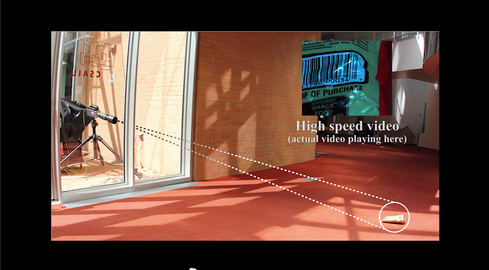Blinders For Google GlassBlinders For Google Glass
Cyborg Unplug promises to boot Google Glass and other surveillance devices from local networks.


Eavesdropping On A New Level
Eavesdropping On A New Level (Click image for larger view and slideshow.)
At the end of the month, foes of Google Glass, wireless webcams, and other network-depended devices associated with surveillance will have a turnkey weapon to deter unwanted spying.
Cyborg Unplug is a wireless network security device developed by Julian Oliver, an artist and developer based in Berlin, Germany, who is among the creators of the Critical Engineering Manifesto. Scheduled for release at the end of September in two versions for less than $100, it is a small box about the size of Apple TV that scans for specified network hardware identifiers. Then, depending which version is being used, the device either displays an alert or automatically disconnects the device from the network.
Cyborg Unplug is a hardware version of Oliver's glasshole.sh script, code released earlier this year that allows Linux devices like a Raspberry Pi to scan for the unique MAC address prefix Google has assigned to its Glass headsets and to force them them off the local network.
Though Google has made an effort to clarify that Glass isn't always recording video, provides a visible indicator of recording (unlike a mobile phone), and is obvious (unlike many video capturing devices), its outreach efforts have failed to win over everyone. Oliver attributes the genesis of his glasshole.sh script to technologist Omer Shapira's dissatisfaction with the presence of someone wearing Glass at a NYU gallery show.
{image 2}
On the Cyborg Unplug website, Oliver and collaborator Samim Winiger insist Glass discrimination is legal, in some circumstances. "It is perfectly legal to block certain devices from using a network you control and administer," they explain. "Some wireless routers allow an administrator to create blacklists, although generally they are limited to specific devices rather than an entire product."
[Will Cyborg Unplug work on Apple iDevices? Read Apple To Dominate Wearables Through 2016: Forrester]
It isn't legal to use the device to boot devices from a network you don't administer, which Cyborg Unplug could do. Oliver and Winiger caution against doing this.
The device isn't foolproof. Cyber Unplug does not stop surveillance; it only denies network access, which will prevent streaming and sharing, temporarily. Also, Glass users may prefer to tether their devices to their smartphones to access their mobile carriers network. Cyborg Unplug may be able to sniff Bluetooth packets in the future, though probably not legally.
But legality aside, is device discrimination a good idea? Do we want other individuals and entities banning certain devices from their networks because they ostensibly "pose a risk to privacy"? Might we not be better off instead urging device makers to develop more privacy-friendly recording functions?
Asked in an email how he reconciled support for open source software and the Internet's open access principles with opposition to specific technologies like Google Glass, and whether he believed other entities, such as Comcast, should follow his example and deploy technology to limit the presence of specific devices on their network, Oliver took issue with question.
"I don't believe that is a useful or logical comparison," Oliver said. "It's not Glass itself that is opposed so much as certain uses of it; abuses that compromise the basic rights and trust of others."
Noting that the sense of violation one would feel from being videotaped in a restaurant and having that video streamed online comes from the obviousness of the act, Oliver warned that it is becoming ever harder to know when our privacy rights are being abused as small network-capable microphones, cameras, and devices like Glass proliferate.
"Cyborg Unplug is not an assault on devices like Glass in themselves," Oliver said. "Rather, it is akin to an alarm system and security guard; a reinforcement of territory and rights in an era where it's increasingly difficult to know when one's privacy is being compromised. Summarily, I consider Cyborg Unplug to be a positive, tactical response to a growing and widely felt social issue, one born from the technologically-enabled abuse of mutual, human respect."
In its ninth year, Interop New York (Sept. 29 to Oct. 3) is the premier event for the Northeast IT market. Strongly represented vertical industries include financial services, government, and education. Join more than 5,000 attendees to learn about IT leadership, cloud, collaboration, infrastructure, mobility, risk management and security, and SDN, as well as explore 125 exhibitors' offerings. Register with Discount Code MPIWK to save $200 off Total Access & Conference Passes.
About the Author
You May Also Like






